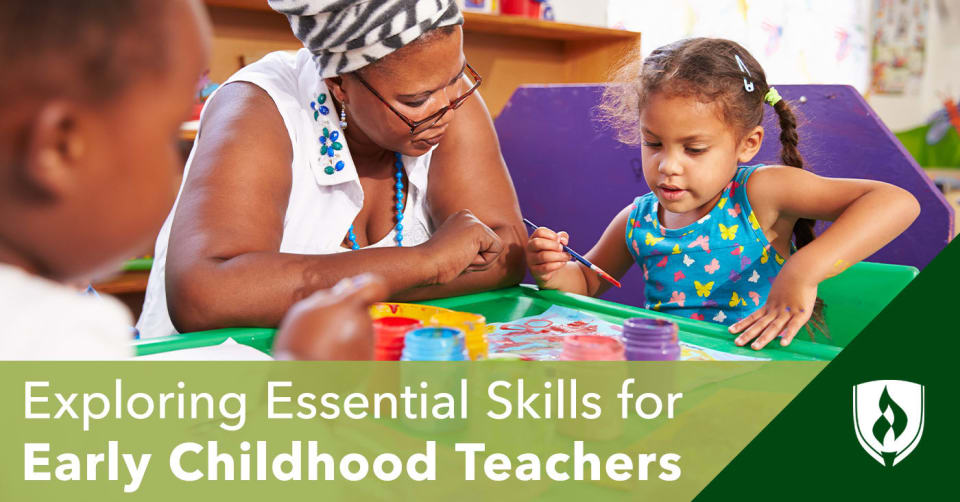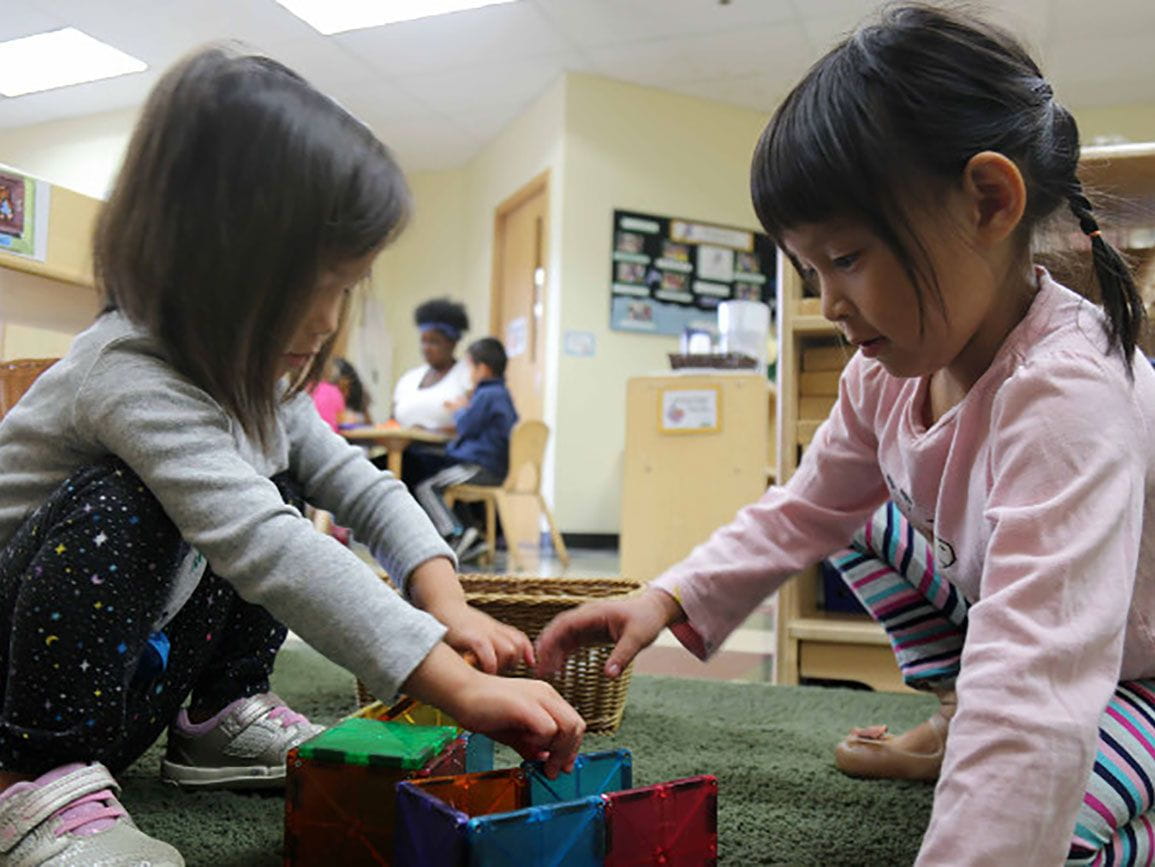What Do Kids Learn in Kindergarten: Essential Skills
In kindergarten, kids learn math, language, reading, science, and social skills through various activities and projects. Kindergarten curriculum focuses on foundational concepts like numbers, letters, shapes, and basic literacy skills to prepare children for academic success in the future.
Through hands-on learning and interactive experiences, children develop cognitive abilities, improve social interaction, and enhance their critical thinking skills. These early years of education play a crucial role in shaping a child’s learning journey and laying a strong foundation for their academic growth.
By engaging in a supportive and nurturing environment, kindergarteners build essential skills that set the stage for their educational development and future achievements.

Credit: www.rasmussen.edu
Importance Of Kindergarten Education
In kindergarten, children learn essential skills that form the foundation for their academic and social development. Kindergarten education plays a crucial role in shaping young minds and preparing them for future success.
Building Blocks Of Development
- Physical, social, and emotional development
- Basic language and literacy skills
- Introduction to numeracy
Basic Language And Literacy Skills
- Recognizing letters and understanding phonics
- Developing vocabulary and reading skills
- Learning to write and form sentences
Introduction To Numeracy
- Counting, identifying numbers, and basic math concepts
- Exploring shapes, patterns, and measurements
- Developing problem-solving skills through mathematical activities
Social And Emotional Growth
- Developing communication and social skills
- Learning how to express emotions and interact with others
- Building empathy, cooperation, and conflict resolution skills
Preparation For Further Education
- Equipping children with the necessary skills for academic success
- Building a strong foundation for future learning
- Instilling a love for learning and curiosity in young learners

Credit: www.brighthorizons.com
Key Skills Taught In Kindergarten
In kindergarten, children start to develop their alphabet knowledge and phonics skills. They learn to recognize and identify letters of the alphabet, understand their sounds, and form connections between letters and their corresponding sounds. Through engaging activities and games, kids become familiar with the alphabet, enabling them to build a strong foundation for reading and writing.
Numeracy skills and counting are essential areas of focus in kindergarten. Children learn to count from 1 to 10 and beyond, understand number concepts, and recognize basic shapes. Through hands-on activities, they develop an understanding of quantity, measurement, and basic mathematical operations. Counting games, puzzles, and interactive experiences make learning math fun and engaging.
In kindergarten, children take their first steps towards reading and writing. They learn to recognize sight words, decode simple words, and comprehend basic texts. Teachers introduce them to age-appropriate reading materials and encourage them to express their thoughts through writing. Kindergarteners start to form sentences, use proper punctuation, and develop their fine motor skills for handwriting. Through storytelling, guided reading sessions, and writing exercises, kids become confident readers and writers.
In kindergarten, children are introduced to the basics of science and social studies. They explore the world around them, learn about different plants, animals, and natural phenomena. Through hands-on experiments and activities, they develop an interest in scientific concepts and the scientific method. Additionally, they are exposed to fundamental social studies concepts such as community, diversity, and cultural awareness. Through discussions, projects, and interactive lessons, kindergarteners develop a curiosity for the world and their place in it.
Kindergarten fosters artistic expression and creativity in children. They engage in various art activities like drawing, painting, sculpting, and crafting. These activities help them explore their imagination, develop fine motor skills, and express their thoughts and emotions. Through art, children learn self-expression, problem-solving, and critical thinking. Kindergarten provides a nurturing environment where creativity flourishes.
Summary
In kindergarten, children learn key skills that lay the foundation for their academic, social, and emotional growth. From alphabet knowledge and phonics to numeracy skills, emergent reading and writing, science and social studies basics, and artistic expression, kindergarten offers a holistic approach to education. These fundamental skills empower children to become confident learners and prepare them for success in future grade levels.
Expectations At The End Of Kindergarten Year
In kindergarten, kids learn foundational skills like reading, writing, math, and social interaction. They also develop cognitive abilities through activities that enhance language, literacy, and basic problem-solving. By the end of the year, children should recognize letters, count, and understand basic concepts like time and shapes.
Recognizing Letters And Simple Words
By the end of kindergarten, children are expected to recognize and identify letters and simple words. They should have a basic understanding of the alphabet and be able to associate letters with sounds.
Basic Reading And Writing Competency
Kindergarteners should have basic reading and writing skills by the end of the year. They should be able to read simple words by sight and write their names. Moreover, they should understand the concept of rhyming words in familiar stories, poems, and songs.
Foundational Math Skills
By the end of kindergarten, children should have a grasp of basic math skills. This includes counting, recognizing numbers and shapes, and an understanding of simple mathematical concepts.
Social Skills And Interaction
In addition to academic skills, kindergarteners are expected to develop social skills and learn how to interact with their peers. This includes sharing, following instructions, and expressing themselves effectively.
Preparation For First Grade
Finally, the expectations at the end of kindergarten include overall preparation for first grade. This encompasses the development of a positive attitude towards learning, listening skills, and following classroom routines.
Curriculum And Learning Environment
Kindergarten is a crucial stage in a child’s educational journey, where they are introduced to a diverse curriculum in a stimulating learning environment that encompasses various domains of development. This includes social, emotional, cognitive, and physical growth, all of which are fostered through a well-rounded curriculum and interactive classroom settings.
Typical Curriculum Components
In kindergarten, the curriculum covers a wide range of subjects to facilitate holistic development. This includes reinforcing language skills, such as learning the alphabet, reading, and writing, as well as establishing foundational mathematics concepts like counting and understanding numbers. Additionally, science and social studies are integrated to introduce young learners to the natural world and their communities.
Interactive And Engaging Classroom Settings
The classroom is designed to be an interactive and engaging environment to promote active learning. Through hands-on activities, group discussions, and educational games, children are encouraged to explore, question, and interact with their peers, fostering a love for learning from an early age.
Encouraging Cognitive Milestones
Kindergarten curriculum is structured to encourage cognitive milestones, such as developing a sense of time, problem-solving, and critical thinking skills. Children are encouraged to express themselves through art and engage in activities that stimulate their creativity and imagination.
Integration Of Arts And Sciences
Art and science are seamlessly integrated into the curriculum, allowing children to explore their creativity and curiosity. By engaging in artistic activities and simple science experiments, students gain a deeper understanding of the world around them while honing their observational and analytical skills.
Parental Involvement And Support
Kindergarten educators often encourage parental involvement to create a supportive learning environment. Involvement may include activities at home, volunteering in the classroom, or engaging in open communication with teachers to ensure that children receive consistent support and encouragement both at school and at home.
Quality Indicators Of A Kindergarten Program
In a quality kindergarten program, kids learn foundational skills like reading, math, science, and social interaction. These programs focus on developing cognitive abilities, language skills, and overall readiness for future education. By the end of kindergarten, children grasp basic concepts that set a strong educational foundation.
Incorporating Varied Learning Approaches
Kindergarten programs that incorporate varied learning approaches provide children with a well-rounded education. These programs understand that every child learns in a unique way and cater to different learning styles. Through hands-on activities, group projects, and individual tasks, children are exposed to a range of learning approaches. This not only helps them grasp concepts more effectively but also fosters their love for learning. By engaging children in different ways, kindergarten programs create an inclusive and stimulating environment for young minds to thrive and grow.Promoting Critical Thinking And Problem-solving
Promoting critical thinking and problem-solving skills is an essential quality indicator of a kindergarten program. These skills are crucial for children to navigate through challenges, make informed decisions, and become independent thinkers. Kindergarten programs incorporate activities that encourage children to ask questions, analyze situations, and find solutions. By presenting real-life scenarios and open-ended problems, children learn to think critically and develop problem-solving strategies. This empowers them to approach challenges with confidence and creativity, setting a strong foundation for their future academic and personal success.Fostering Creativity And Imagination
Kindergarten is a time where children’s creativity and imagination are at their peak. A quality kindergarten program recognizes the importance of fostering these qualities and provides ample opportunities for children to express themselves and explore their creativity. Through art projects, pretend play, music, and storytelling, children are encouraged to think outside the box, unleash their imagination, and develop their unique talents. By nurturing creativity, kindergarten programs inspire children to see the world in new and vibrant ways, igniting their passion for learning and paving the way for a lifetime of innovation and self-expression.Supporting Emotional Intelligence
Emotional intelligence is a vital aspect of a child’s overall development, and quality kindergarten programs prioritize its cultivation. These programs provide a safe and nurturing environment where children can express their emotions, develop self-awareness, and learn to empathize with others. Through activities that promote emotional regulation, conflict resolution, and effective communication, children build strong emotional foundations. They learn to manage their feelings, understand the perspectives of others, and build healthy relationships. By supporting emotional intelligence from an early age, kindergarten programs equip children with essential life skills that will benefit them throughout their lives.Ensuring A Safe And Inclusive Environment
A safe and inclusive environment is a fundamental requirement of any quality kindergarten program. Children thrive when they feel valued, respected, and supported. Kindergarten programs prioritize creating an inclusive space where diversity is celebrated, and each child’s unique strengths are recognized. These programs provide opportunities for collaboration, teamwork, and social interaction, promoting a sense of belonging and acceptance amongst children. By ensuring a safe and inclusive environment, kindergarten programs lay the foundation for positive social development, fostering empathy, understanding, and a lifelong appreciation for diversity.
Credit: www.amazon.com
Frequently Asked Questions Of What Do Kids Learn In Kindergarten
What Does A Child Learn In Kindergarten?
In kindergarten, children learn the basics of language, literacy, thinking, and cognitive skills. They also develop physical, social, and emotional skills. They learn the alphabet, counting, reading, writing, and basic math concepts. Kindergarten provides the building blocks for their education and development.
What Should A Kid Know By The End Of Kindergarten?
By the end of kindergarten, a kid should know the basics of language, math, social, and emotional development. This includes letter sounds, basic reading, counting, and understanding of time, shapes, and more.
What Should A Kid Know Going Into Kindergarten?
Kids should know basic language, literacy, thinking, and cognitive skills. They will learn the alphabet, counting, social skills, and some sight words.
What Should A 5 Year Old Know Academically?
In kindergarten, children learn the basics of language, literacy, thinking, and cognitive skills. They learn to recognize letters, read common words, and understand rhymes. They also develop social and emotional skills and learn basic math concepts. Kindergarten provides the building blocks for a child’s academic and personal development.
Conclusion
Kindergarten provides the foundation for a child’s physical, social, and emotional development. It also introduces them to language, literacy, and cognitive skills. Through activities like letter recognition, reading, counting, and writing, children gain the necessary skills to succeed in their academic journey.
Kindergarten is a crucial stage where children learn and grow, setting the stage for future educational success.







